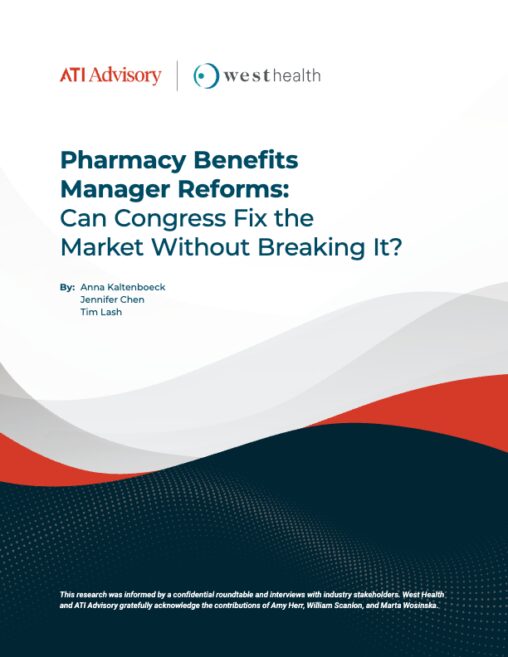Pharmacy Benefits Manager Reforms: Can Congress Fix the Market Without Breaking It?
By Anna Kaltenboeck, Jennifer Chen, and Timothy Lash
Pharmacy Benefit Managers (PBMs) are pivotal in the U.S. healthcare system for managing prescription drug benefits and negotiating drug prices, yet their role has sparked controversy over conflicts of interest and opaque pricing models. The complexity and concentration of the PBM market, where a few large entities control significant market shares, have led to accusations of anti-competitive practices, prompting bipartisan legislative efforts aimed at reform. These proposed reforms focus on enhancing transparency, regulating PBM revenue streams such as rebates and spread pricing, and ensuring PBMs act in the best interests of plan sponsors and consumers.
Currently, legislative action on PBM reform appears stalled, with significant political attention but little movement expected before the 2024 elections. Various committees have advanced proposals emphasizing increased accountability for PBMs, restrictions on revenue practices, and studies on the effects of vertical integration. These reforms aim to balance the need to maintain PBMs’ ability to negotiate drug prices effectively without allowing them to exploit their dominant positions at the expense of payers and patients. The ongoing Federal Trade Commission (FTC) investigation highlights the complexity of achieving effective oversight and reform in this influential sector.
In the broader context, PBM reforms are poised to reshape how prescription drug benefits are managed, potentially leading to lower costs and better access to medications for Americans. However, the effectiveness of these reforms will hinge on their ability to enforce fair practices without undermining the economic incentives that enable PBMs to secure price concessions from drug manufacturers. As the debate continues, the outcome will likely depend on a nuanced approach that addresses the unique challenges of the U.S. healthcare market, characterized by its decentralized and privatized nature compared to systems in other high-income countries.




![PBM Summary 04.10.24[32] thumbnail](https://s8637.pcdn.co/wp-content/uploads/2024/04/PBM-Summary_04-10-2432-pdf-image-224x296.jpg)